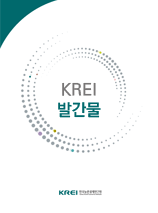
- A Study on the Improvement of Sanitary and Safety Management on Livestock Farms
-

-
Consumers point out that livestock products are foods that concern them most in an aspect of safety. The products play an important role as the people’s nutrition source. Moreover, because livestock products have a high possibility of being exposed to many hazards, efforts are needed to secure the safety of the products. Securing food safety should be approached from a view of the food chain. Therefore, sanitary control strategies should increase the sanitation level of a certain stage (from production to consumption) and consider the balance of each stage’s management level at the same time. Livestock farms are still considered vulnerable in animal products’ food chain. Accordingly, sanitary and safety control for the farms is necessary.
This control is the management not to be exposed to hazards during the raising term in farms in order to raise animal foods’ safety, and the management to ship safe livestock products and healthy domestic animals uninfected with a disease and uncontaminated by hazards including heavy metals and pesticide or drug residues.
Korea’s laws on sanitation safety in the livestock raising stage are related to infectious diseases in domestic animals; the control of animal drugs, residues, and feed; excreta treatment; and farms. Related policy projects are the livestock products’ HACCP (Hazard Analysis and Critical Control Point) consulting project and the direct payment program for eco-friendly, safe livestock products; a relevant system is certification of environment-friendly products (antibiotic-free, organic), of animal welfare farms, and of HACCP.
The farm survey result shows that HACCP-certified farms considered PR of HACCP to consumers, facility cost support, and HACCP accreditation simplification as important policies. Non-accredited farms thought certification simplification and facility cost support significant. They answered they did not obtain HACCP certification because it was difficult and was not helpful to management. This result means that farms still consider accreditation hard despite the consulting project for helping their certification. It indicates the necessity for improving the service quality of HACCP consulting.
According to the result of the consumer survey on livestock products safety, an expiration date was what consumers checked most for the purchase of the products, followed by a HACCP certification mark. Also, compared to the previous survey, consumers’ awareness of HACCP accreditation is on the rise. They answered that the livestock raising stage’s sanitary and safety control was most crucial among the distribution stages. Their confidence in HACCP-certified animal products’ safety was also high. In addition, they expected that the integrated certification system of livestock products safety control would contribute to increasing the products’ safety. Also, many consumers agreed to make livestock farms’ HACCP accreditation compulsory, although product prices might rise.
The survey on retailers showed that 68% of eggs on sale have obtained HACCP certification. According to the quantitative analysis, prices of HACCP-accredited eggs were higher than those of non-certified eggs, but estimated coefficients were not statistically significant. This may indicate that HACCP’s value is not recognized in consumption regions’ markets.
The ultimate goal of strengthening livestock farms’ sanitary and safety management is to enhance animal products’ safety by shipping healthy livestock and producing safe products. This study presented plans to expand the farms’ HACCP certification in order to improve their sanitation and safety control as follows.
First, demand for HACCP-accredited animal foods should increase by improving the integrated certification system of livestock products safety control. Second, consumers’ evaluation needs to be better through PR of HACCP-certified products to them. Third, targets of the policy project, the HACCP consulting project should be expanded so that the government can support more farms. Fourth, consulting companies’ role needs to increase to help farms’ HACCP operation and support their regular and renewal evaluation after certification. Last, it is necessary to raise the number of livestock products safety control certifiers in order to improve the quality of HACCP accreditation and of services for farmers.
Researchers: Song Woo-jin, Kim Hyun-jung, Seo Gang-cheol,
Kim Jin-nyoun, and Lee Yong-geon
Research period: 2014. 1. ~ 2014. 10.
E-mail address: gnos@krei.re.kr -
목차
-
제1장 서론
제2장 축산농장의 위생안전관리를 위한 법령과 제도
제3장 축산농가 조사 분석
제4장 축산물 안전에 대한 소비자 평가
제5장 외국 사례 조사
제6장 축산농장 위생안전관리 강화 방안
제7장 요약 및 결론
요약문
Consumers point out that livestock products are foods that concern them most in an aspect of safety. The products play an important role as the people’s nutrition source. Moreover, because livestock products have a high possibility of being exposed to many hazards, efforts are needed to secure the safety of the products. Securing food safety should be approached from a view of the food chain. Therefore, sanitary control strategies should increase the sanitation level of a certain stage (from production to consumption) and consider the balance of each stage’s management level at the same time. Livestock farms are still considered vulnerable in animal products’ food chain. Accordingly, sanitary and safety control for the farms is necessary.
This control is the management not to be exposed to hazards during the raising term in farms in order to raise animal foods’ safety, and the management to ship safe livestock products and healthy domestic animals uninfected with a disease and uncontaminated by hazards including heavy metals and pesticide or drug residues.
Korea’s laws on sanitation safety in the livestock raising stage are related to infectious diseases in domestic animals; the control of animal drugs, residues, and feed; excreta treatment; and farms. Related policy projects are the livestock products’ HACCP (Hazard Analysis and Critical Control Point) consulting project and the direct payment program for eco-friendly, safe livestock products; a relevant system is certification of environment-friendly products (antibiotic-free, organic), of animal welfare farms, and of HACCP.
The farm survey result shows that HACCP-certified farms considered PR of HACCP to consumers, facility cost support, and HACCP accreditation simplification as important policies. Non-accredited farms thought certification simplification and facility cost support significant. They answered they did not obtain HACCP certification because it was difficult and was not helpful to management. This result means that farms still consider accreditation hard despite the consulting project for helping their certification. It indicates the necessity for improving the service quality of HACCP consulting.
According to the result of the consumer survey on livestock products safety, an expiration date was what consumers checked most for the purchase of the products, followed by a HACCP certification mark. Also, compared to the previous survey, consumers’ awareness of HACCP accreditation is on the rise. They answered that the livestock raising stage’s sanitary and safety control was most crucial among the distribution stages. Their confidence in HACCP-certified animal products’ safety was also high. In addition, they expected that the integrated certification system of livestock products safety control would contribute to increasing the products’ safety. Also, many consumers agreed to make livestock farms’ HACCP accreditation compulsory, although product prices might rise.
The survey on retailers showed that 68% of eggs on sale have obtained HACCP certification. According to the quantitative analysis, prices of HACCP-accredited eggs were higher than those of non-certified eggs, but estimated coefficients were not statistically significant. This may indicate that HACCP’s value is not recognized in consumption regions’ markets.
The ultimate goal of strengthening livestock farms’ sanitary and safety management is to enhance animal products’ safety by shipping healthy livestock and producing safe products. This study presented plans to expand the farms’ HACCP certification in order to improve their sanitation and safety control as follows.
First, demand for HACCP-accredited animal foods should increase by improving the integrated certification system of livestock products safety control. Second, consumers’ evaluation needs to be better through PR of HACCP-certified products to them. Third, targets of the policy project, the HACCP consulting project should be expanded so that the government can support more farms. Fourth, consulting companies’ role needs to increase to help farms’ HACCP operation and support their regular and renewal evaluation after certification. Last, it is necessary to raise the number of livestock products safety control certifiers in order to improve the quality of HACCP accreditation and of services for farmers.
Researchers: Song Woo-jin, Kim Hyun-jung, Seo Gang-cheol,
Kim Jin-nyoun, and Lee Yong-geon
Research period: 2014. 1. ~ 2014. 10.
E-mail address: gnos@krei.re.kr저자정보
저자에게 문의
구매안내
KREI의 출판물은 판매 대행사 (정부간행물판매센터)와 아래 서점에서 구입 하실 수 있습니다.
판매대행사
- (주)정부간행물판매센터http://www.gpcbooks.co.kr사이트 바로가기
- 서울특별시 중구태평로 1가 25번지
- TEL 02) 394-0337, 734-6818
- FAX 02) 394-0339
판매서점
판매서점 교보문고 http://www.kyobobook.co.kr/ 영풍문고 http://www.ypbooks.co.kr/ 알라딘 http://www.aladin.co.kr/ 활용도 정보
활용도 정보 상세정보 조회 좋아요 다운로드 스크랩 SNS공유 23078 0 63 0 0 - 같은 분야 보고서가 없습니다.
- 같은 분야 인기 보고서가 없습니다.
의견남기기
-


